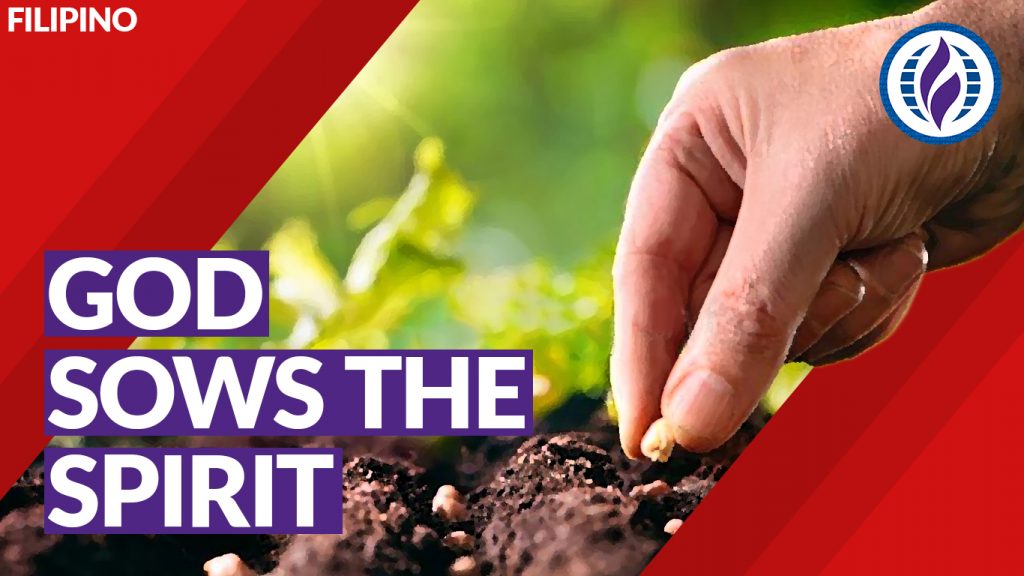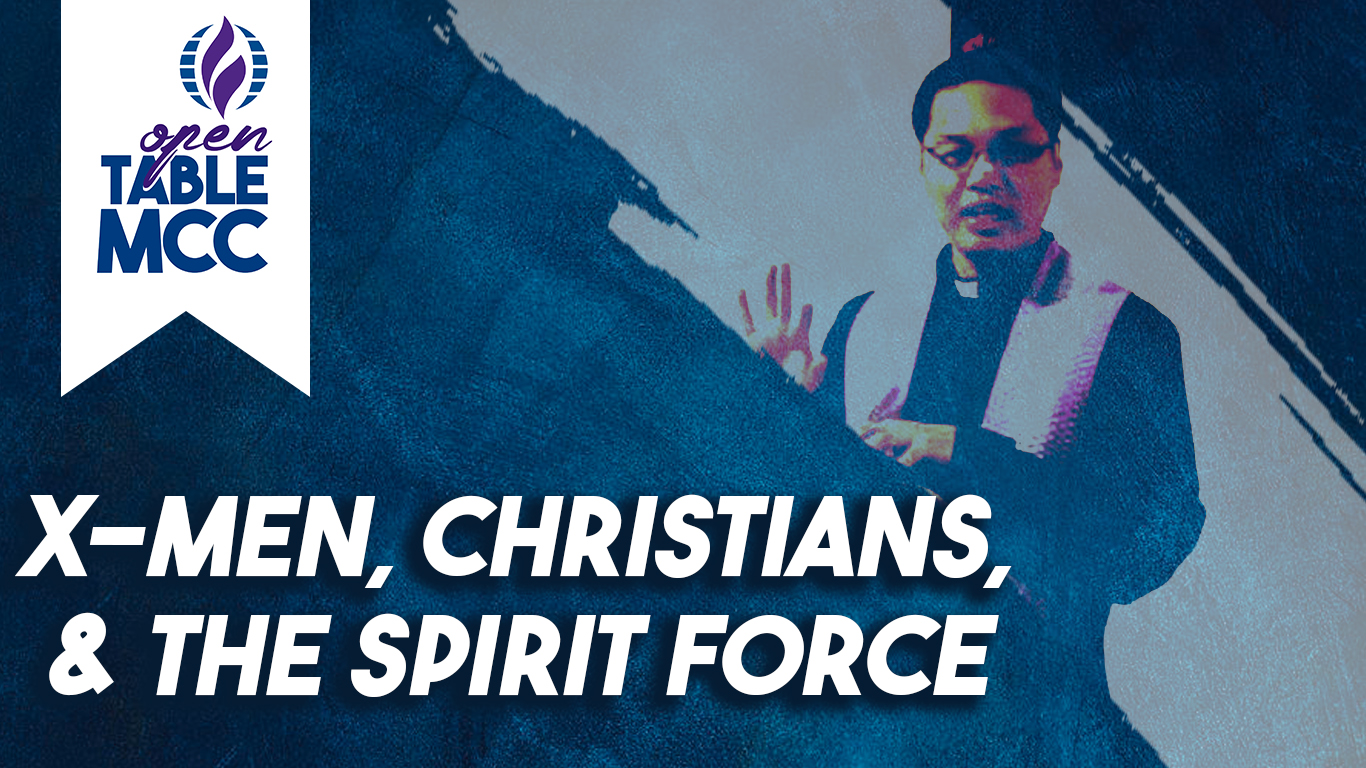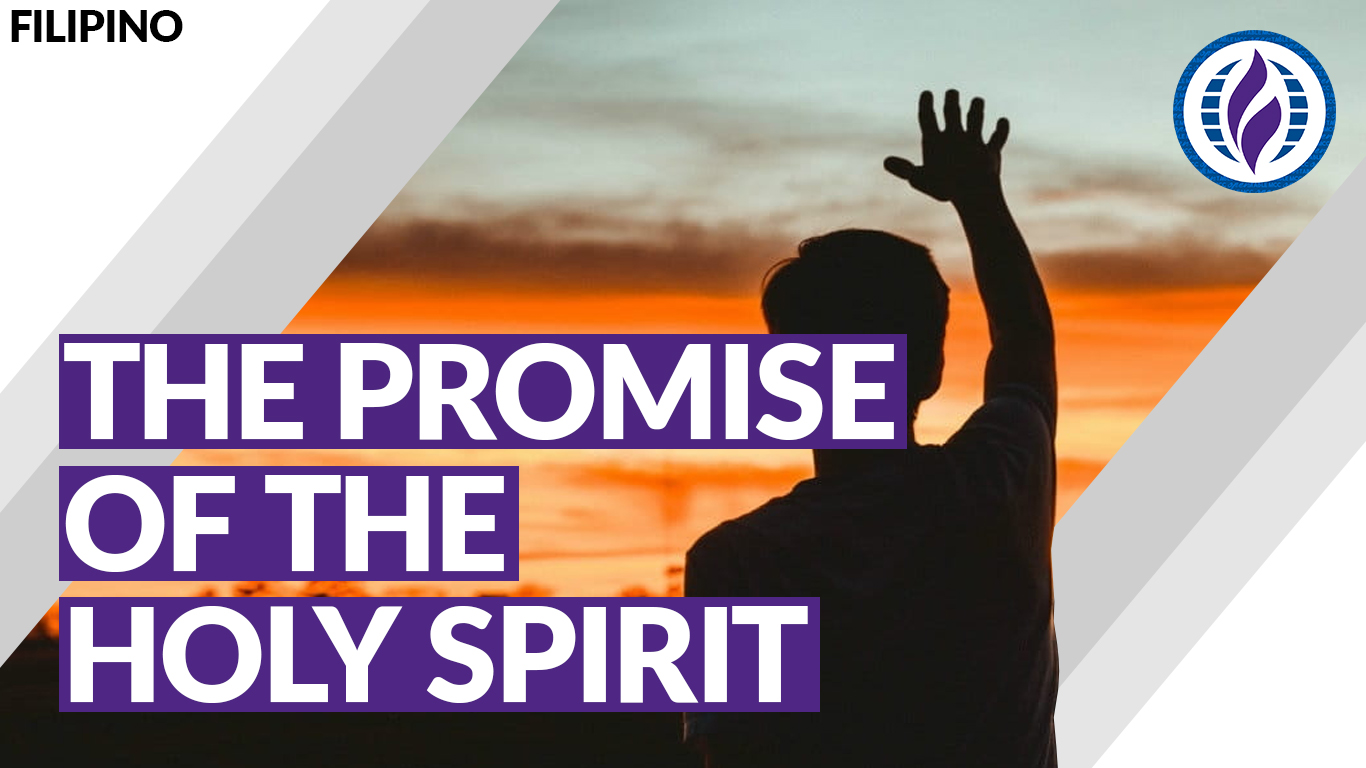When the day of Pentecost had come, they were all together in one place. And suddenly from heaven there came a sound like the rush of a violent wind, and it filled the entire house where they were sitting. Divided tongues, as of fire, appeared among them, and a tongue rested on each of them. All of them were filled with the Holy Spirit and began to speak in other languages, as the Spirit gave them ability.
Now there were devout Jews from every people under heaven living in Jerusalem. And at this sound the crowd gathered and was bewildered, because each one heard them speaking in the native language of each. Amazed and astonished, they asked, “Are not all these who are speaking Galileans? And how is it that we hear, each of us, in our own native language? Parthians, Medes, Elamites, and residents of Mesopotamia, Judea and Cappadocia, Pontus and Asia, Phrygia and Pamphylia, Egypt and the parts of Libya belonging to Cyrene, and visitors from Rome, both Jews and proselytes, Cretans and Arabs—in our own languages we hear them speaking about God’s deeds of power.” All were amazed and perplexed, saying to one another, “What does this mean?” But others sneered and said, “They are filled with new wine.”
But Peter, standing with the eleven, raised his voice and addressed them, “Fellow Jews and all who live in Jerusalem, let this be known to you, and listen to what I say. Indeed, these are not drunk, as you suppose, for it is only nine o’clock in the morning. No, this is what was spoken through the prophet Joel:
‘In the last days it will be, God declares, that I will pour out my Spirit upon all flesh, and your sons and your daughters shall prophesy, and your young men shall see visions, and your old men shall dream dreams. Even upon my slaves, both men and women, in those days I will pour out my Spirit, and they shall prophesy.
Scripture Reading
Acts 2:1-18 (NRSV)
Today is Pentecost Sunday. It is a day of celebration and remembrance of the outpouring of the Holy Spirit on the disciples of Jesus Christ. The Holy Spirit is a gift from God, and it is available to all people, regardless of their race, ethnicity, gender, or sexual orientation.
The story of Pentecost is found in the book of Acts in the Bible. It tells how the disciples were gathered together in Jerusalem when they were suddenly filled with the Holy Spirit. They began to speak in different languages, and many people who were gathered in Jerusalem were amazed and wondered what was happening.
The Holy Spirit is a powerful force for good in the world. It can empower us to live our lives to the fullest, to love and serve others, and to make a difference in the world.
On this Pentecost Sunday, I encourage you to open yourself up to the Holy Spirit. Let the Spirit fill you with love, joy, peace, patience, kindness, goodness, faithfulness, gentleness, and self-control. Let the Spirit empower you to live your life to the fullest and to make a difference in the world.
Pentecost is a time of great joy and celebration. It is a time to remember the gift of the Holy Spirit, and to open ourselves up to the power of the Spirit in our lives.
Here are some ways to experience the Holy Spirit in your life:
- Pray and ask for the Holy Spirit to fill you.
- Read the Bible and let the Spirit speak to you through the words of Scripture.
- Spend time in nature and let the Spirit speak to you through the beauty of creation.
- Serve others and let the Spirit work through you to make a difference in the world.
The Holy Spirit is a gift from God, and it is available to all people. Open yourself up to the Spirit, and let the Spirit transform your life.
Justice and Hope
Justice is what love looks like in public space. It is what love looks like in society, in public. And the prophet speaks to witness God’s love, and to declare hope. To declare hope. Because sometimes the prophets, they say a lot of things about the end of the world, right? But at the end of the day, they will always proclaim hope and the faithfulness of God towards the end.
So, the second mark of the Spirit and invitation, when you are liberated, the call is for you to liberate others, first by proclamation. To proclaim. To speak words. That is why I connect it to the parable of the sower, the seeds as the words that fell upon the ground. But the words are closely tied and connected to the Spirit. And so the invitation is for you when you receive the Spirit – well you have the Spirit – if you activate that Spirit, if you follow the invitation of the Spirit, is to proclaim. To proclaim.
And that is what Jesus did, right? That is what the inauguration of the Jesus Ministry in the Luke tradition, the gospel of Luke, is about. When he was in the synagogue, he read from the prophet Isaiah, and he said, “The Spirit of the Lord has anointed me to proclaim freedom. To set captives free, and to declare the great jubilee of the Lord.”
So proclaim. Proclaim. Number one denounce injustice. As queer people, we are oppressed, even if you middle class people don’t feel it. But there is oppression of queer people. There is discrimination of queer people. And if you don’t feel it, it’s for the rest of our queer siblings who actually feel it. Who actually experience it on a daily basis. You proclaim. You proclaim the liberation of God. You denounce injustice. And proclaim justice. You witness to God’s love, when nobody else can love anyone or a queer person, we love our fellow queer siblings. We want what is good for them, we share our lives with them, as they share their lives to us.
Proclamation does not only mean speaking, Proclamation, first happens by doing. By embodying. Right? Proclaiming and witnessing God’s love. So it’s not just saying God’s love. Sadhguru said, cultivating love in you. So that when you have love in you, everything else and how you interact with the external world will also be loving. And then hope. Proclaiming hope.
Most of us here are doing okay. We’re halfway through our spiritual formation program. We talked about love earlier. So we’re doing okay in terms of our internal conflicts, internalized things. But there are so many other people out there who are also worshipping right now, in Pasig, Shangri-La, and Ortigas, who have such tender love for God, and yet at the same time, they have such fear of God. How can we witness God’s love for them? How can we give hope, or at least offer hope? And continue to denounce even religious injustice.
So the mark, the invitation of the Spirit is number one: liberation, coming out. Second: proclamation. By living your life, and also by proclaiming. And also, in proclaiming: telling your story. Jesus was a storyteller. Jesus rarely theologized. Jesus told stories. Of farmers. Of women losing coins. Of a Samaritan woman. Of a prodigal son, or maybe a prodigal father. Jesus told stories. Because in those stories, it is said that the kingdom of God is like this. When the Spirit is in you – and I know the spirit is in you – how can your life story be, “the love of God is like unto this: When I was fifteen years old. The love of God is like unto this: When I first came to the blue door of De Oro building fourth floor. The love of God is like unto this: When I went home to the Philippines, and served the urban poor there. The love of God is like unto this: When I gave birth unto myself as a transgender person. And lived the full life.” How can your story be the very seeds of the words of the Spirit to liberate others.
Lastly, we’re going back to community. Community. The Pentecost story happened, and then what happened afterwards was an entire community of Christians suddenly found themselves having so many members, that they did not know how to organize themselves. Because when Pentecost happened, Peter, John, and others preached, and many people became Christians. So people suddenly wanted to be part of that first generation Christian community.
So for Christians, just going back to the first generation to the Pentecost story, the Spirit will always call us into community, into collective. And there is a saying, “you cannot be Christian alone.” There is no such thing as a Christian by himself, herself, or themselves. It is always a call to community. Because it is only in community – it can be here, or in other places – that you learn and you mature. When you deal with different people, when you deal with conflict, when you deal with all sorts of trauma and mental health conditions. And learn how to live with so many differences. That is when we also grow in faith, in love, in service. And there’s always a call to communities. There’s always a call to a collective.
At times, there are people who have been active in LGBT activism. They have posted on Facebook, “Can an individual be called an activist? Or does an activist have to be part of an organization?” For me, no one can be an activist by himself. And also the term activist is not self-proclaimed. It is something that is attributed to you. By where you are part of, what activism or advocacy you are doing, and which collective you are part of.
Because can one person do everything? Can one person solve the different injustices in the world? No. Not even one community, one organization. It’s a series of different organizations, different communities, different groups. But the thing is, as an individual we have to be part, we have to participate, to give our share in a collective. Because you by yourself, you cannot do it. At the same time, who checks you? Who checks your motivations? How do you also grow? What is your check and balance? As a Christian, as an activist, as an advocate, what is your point of reference? And when you’re too tired of everything, who picks up the work if you’re not part of any organization or community?
And when you’re too tired of everything, who picks up the work if you’re not part of any organization or community? And I’ve always said this here in Open Table: It doesn’t have to be here. It doesn’t have to be with or in Open Table. That’s one of also the unique messages of this church, while every other church says, “We are the only ones. God is here, and you can only practice your faith here.” No we don’t say that in Open Table. Yes, you can do that here if you feel that the Holy Spirit is leading you here, and to practice your faith to be part of the collective work of Open Table in terms of the intersectionality, the convergence of SOGIE and Christian spirituality, if that is what you’re calling is, then maybe you’re called here. But if not, and so many people have come and gone in this community, there are many other organizations. LGBT organizations. And God is equally there. But the most important thing is, you have to have community. You have to have an organization. Wherever it is. Whoever it is with. So you have the Spirit. You have the Holy Spirit. Whether you’re aware of it, whether you feel it or not, whether you believe in it or not, whether you’re Christian, or of another religion or faith or no faith at all. The spark of the divine is in you. In you, with you, working in you, through you. And the question is will you accept the invitation, to liberate yourself and others. Will you accept the invitation for you to proclaim God’s love and God’s justice. And to tell your story, also as part of the gospel. The Now Testament. And will you live with and in community. Whatever that community is, wherever that community is. And so today is Pentecost, start of the pride month. Will you listen to what the Holy Spirit is telling you today?
And we say: May the words we receive inspire us, comfort us, and challenge us. Amen.
Podcast: Play in new window | Download
Subscribe: Apple Podcasts | Spotify | RSS



